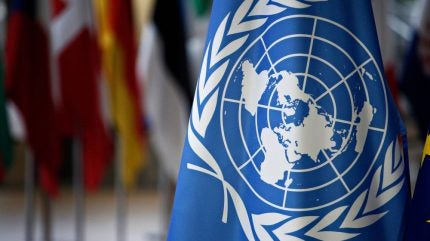
In further evidence of a gloomy global economy, new figures reveal that foreign direct investment (FDI) to the planet’s 82 structurally weak, vulnerable and small economies declined by 12% to $41bn in 2022, attracting a tiny share of global foreign investment at just over 2% of the total (down from 2.2% the year before), according to the UN Conference on Trade and Development (UNCTAD) World Investment Report, a flagship annual publication.
This rate of decline is even worse than the worldwide drop of 11% in 2022, driven mainly by falling investment from (and between) the world’s most advanced economies. Meanwhile, developing countries saw investment increase, accounting for around 66% of global FDI last year, up from 59% in 2021.

Discover B2B Marketing That Performs
Combine business intelligence and editorial excellence to reach engaged professionals across 36 leading media platforms.
“The succession of ongoing global crises, especially the food and energy crises as well as financial and debt distress, has hit investment flows to the poorest countries disproportionally,” writes the report. “Although the number and value of greenfield project announcements in the least developed countries [LDCs] increased in 2022 compared with 2021, they still remain lower (more than half in number and one-quarter in value) compared with their ten-year average. This is a major concern as these investment types are crucial for building productive capacity and thus for prospects of sustainable recovery.”
Meanwhile, investment activity in LDCs across sectors relevant for the attainment of the Sustainable Development Goals (SDGs) – infrastructure, renewables, water and sanitation, food security, health and education – rose in 2022 compared with 2021, but nonetheless remain depressed. Compared with 2015, when the SDGs were adopted, project numbers in the past two years have been significantly lower in most sectors except for renewables and water and sanitation. The decrease was evident in both greenfield project announcements and international project finance deals.
More importantly, the share of LDCs in SDG-relevant investment across developing countries as a group fell to its lowest-ever level in 2022.
UNCTAD’s report also shows that multinational enterprises (MNEs) from developing countries are playing an increasingly important role in LDCs. China remains the largest source of FDI, with its FDI stock in the group reaching $47.7bn in 2021 – a 21% rise from 2017 (despite the drop in Belt and Road Initiative investment worldwide). There was also a significant rise in investment from MNEs in Thailand to $14bn – a 46% rise from 2017.

US Tariffs are shifting - will you react or anticipate?
Don’t let policy changes catch you off guard. Stay proactive with real-time data and expert analysis.
By GlobalDataThe growth of FDI in LDCs has lagged that of other external sources of finance for most of the past decade. Official development assistance and remittances are significantly higher. FDI flows remain, nonetheless, an important source of external finance for LDCs, crucial for their sustainable development and eventual graduation.
Although international project finance is an increasingly important source of investment in most countries and across a diverse set of industries, including SDG-relevant sectors, in LDCs extractive industries continue to be the main target of project finance. This points to the continued dependence of LDCs on resource-driven FDI.





